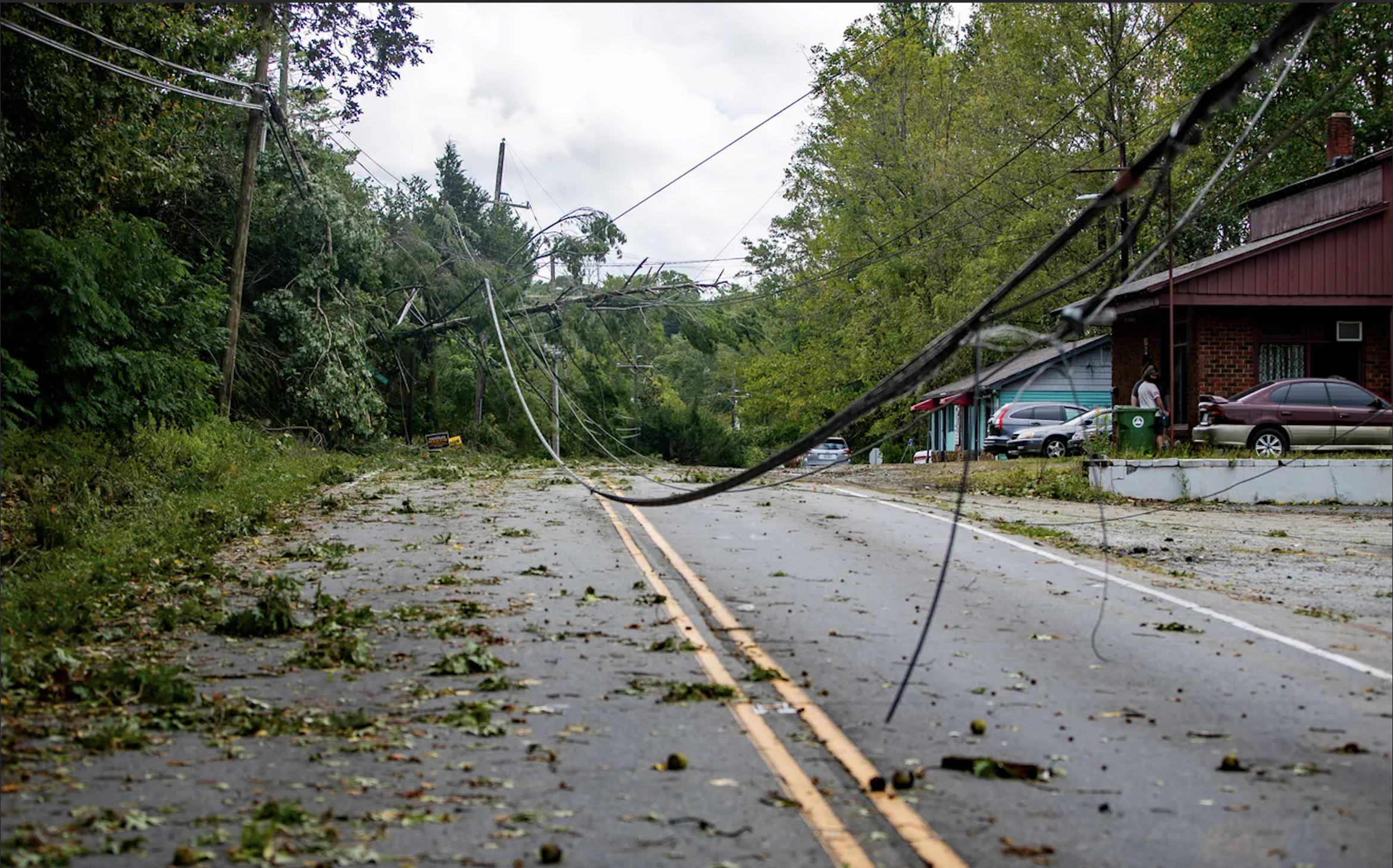
Local Solar Improves Resiliency in the Face of Rising Storms: As North Carolina rebuilds after Hurricane Helene, and as scientists redouble their warning of even stronger storms to come, it is more important than ever that NC residents and leaders demand a transition to generating and storing solar power where electricity is being used – on roofs, parking areas and vacant lots close to towns and cities.
Expanding solar-plus-storage can greatly improve the ability of our grid to withstand and recover from storms, equipment failures and acts of malice. That’s why NC WARN is proposing Sharing Solar, a fresh approach that can begin right away and expand quickly to spread local SPS across North Carolina.
Reduces Reliance on Vulnerable Power Lines: High voltage power lines and other traditional infrastructure are particularly vulnerable to high winds and flooding. Hurricane Helene damaged and destroyed thousands of power poles and towers, along with substations, causing more than 2 million Duke Energy customers to lose power in the Carolinas.
But in Hot Springs, NC, a microgrid was able to restore continuous power to the town with only solar and batteries, despite Hot Springs’ substation being washed away.
Keeps Emergency Facilities Online: Distributed energy projects like local solar and on-site batteries can reduce reliance on towers and poles, reduce the need to move electricity across the grid and keep emergency facilities operational during outages.
Under NC WARN’s Sharing Solar proposal, critical facilities like schools, fire/EMS facilities, hospitals, local government buildings and others deemed most vulnerable to climate challenges will be prioritized for SPS installations.
“Islanded” Solar for Homes and Businesses: Current SPS owners can use what’s stored in their batteries during outages, but some solar panels are not authorized by Duke Energy to run when the grid is down. There is a straightforward solution called “solar islanding,” which should temporarily disconnect individuals with solar and/or batteries from the larger grid. This can help limit the number of customers affected by an outage and speed up response and recovery.
Reduces Strain on Grid: Local solar also reduces strain on the grid during peak demand, helping to prevent blackouts, avoiding use and construction of fracked gas-fired plants and making the system more robust overall.
Sharing Solar could be implemented quickly & easily … why don’t we at least give it a try?
- We can all can share in the costs and benefits of clean energy much like we currently pay for polluting power plants – through the electric rate system
- Avoids repeated rate hikes caused by Duke’s costly plans to expand fracked gas
- Could phase out fossil fuels quickly
- Cheaper than other forms of power
- Proven models work in other states
- Increases access to solar
- Duke Energy profits and avoids the high risks of expanding fracked gas and nuclear
- NC has a vast amount of rooftop, parking and other space for local solar
- Benefits solar companies
- Creates jobs in small towns and cities
